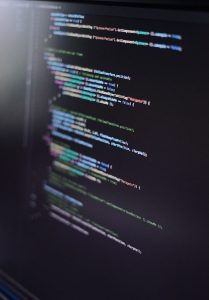Last weekend I finally got around to reading Two Scoops of Django, and it was very interesting. I wish I had picked it up earlier. I think I first started really delving into the Django framework about 3 months ago or so, and I’ve really enjoyed tinkering around with the models and ORM. I’ve done a bit with the forms and views, but I’ve spent a lot more time trying to draft out some data models for various projects and get a feel for how things work. I’ve fallen into my trap of getting too caught up in tools in order to actually deliver anything yet, but I’ve got two projects that I am primarily working on. I’ve been very disciplined about spending at least an hour or more each day on one of them.
Part of me thinks I should just focus on the one at the exclusion of the other, just to focus and plow through. “Starting is easy, finishing is hard,” as Jason Calacanis says. The other voice in my head is telling me that as long as I’m pushing forward on one of them or the other, it doesn’t matter, since the skills I’m learning on each will translate to the other. The last few days have seemed like my wheels are spinning though, as it seems I spent more time sharpening my ax than I did actually cutting down trees. I spent what feels like two whole days just trying to figure out how to setup cookiecutter-django the way I wanted it, another day or two trying to figure out why pipenv doesn’t work properly in Pycharm, and then another trying to figure out how to get Celery to work. Yesterday it was all about how to properly clone a 3rd party Django app so that I can make some modifications to it. And I’ve spent hours trying to figure out how to do my tests, what needs testing and what doesn’t. Endless hours on Medium reading everything I could find related to any of the above.
But as long as I can sit down and work on something, I tell myself I’m making progress and becoming an actual developer. I’ve talked about discipline previously, and that discipline is paying off with my day job as well, whether it’s Powershell scripts, or more Python API wrappers. The hardest thing about it for me is the solitary nature of what I’m doing. Not having a team or partner with these projects is the hardest, cause it ultimately means that I have no one to bounce ideas off of in real time. Best I can hope for is to dump something out on StackExchange and hope that someone gets back to me. Most of the time, just explaining the question sufficiently enough for someone else to understand it spurs the kind of subconscious creativity that leads to a solution.
There’s been many false starts already, but I’m starting to get there.
Currently, with a fintech app I’m working on, I’m trying to determine how I expand a cryptocurrency wallet app designed for Bitcoin and other assets that use it’s RPC interface. The asset that I’m working with is a fork of a privacy coin with the un-shielded send functionalities disabled. So I’ve got to figure out the simplest method to update all the calls in this library so that they’ll use the shielded commands for this asset while retaining the existing commands for the legacy assets. So far, I’ve decided to try adding a boolean field to the currency model and add an if clause to the Celery tasks to choose between the two based on the boolean. It requires modifying code in each of the various function. While it’s simple, it seems to violate one of the core principals of Django, which is don’t repeat yourself (DRY). It seems to me that there is another way that I can add a decorator or something to each of these functions — maybe a strategy pattern — to do that bit of logic in a way that would make it easier to implement. Maybe even without having to fork the 3rd party app in the first place.
We shall see.
